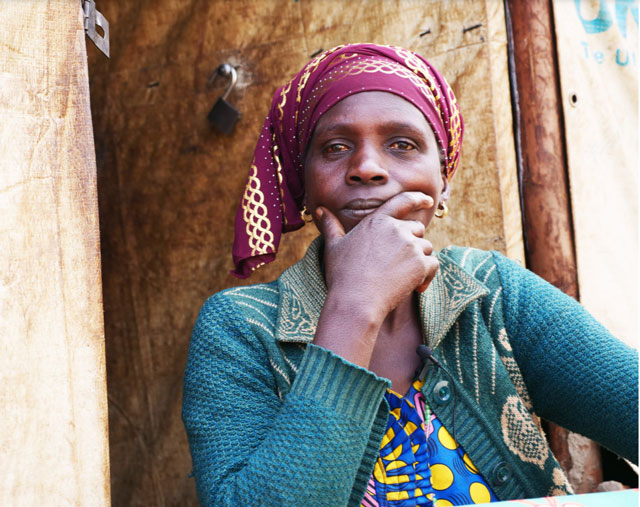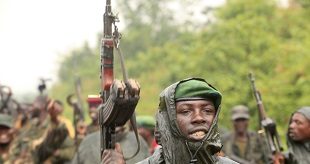
NEWS ANALYSIS | RONALD MUSOKE | When, in 2019, Georgette, a mother of four fled Lonalo-Lotsikpa, her village in the Ituri Province of northeastern DR Congo following a flair-up in conflict which left her husband dead, she hoped she would soon return to her home. Instead, it has been five years of living a near destitute life in the Plaine Savo internally displaced people’s camp. “I feel like I’m in prison here, it’s not a place I like. I’d like to go home. It’s hard to get food. There’s not much assistance. Access to water is also a problem. I’m tired of this life, especially when I see my children who can no longer go to school,” she is quoted as saying in a recent report by the Norwegian Refugee Council.
****
Georgette’s ordeal might be anecdotal but the Norwegian Refugee Council says it represents thousands of other people in the province who are currently grappling with what humanitarian NGOs are describing as Congo’s forgotten “humanitarian catastrophe.”
According to figures from the UN’s International Organization for Migration (IOM), the Ituri province is at the moment, home to the second largest internally displaced and returnee population of any province in the DR Congo (1.6 million and 1. 2 million individuals respectively).
In December 2023, the United Nations Office for the Coordination of Humanitarian Affairs (UNOCHA), noted how some 97,000 newly displaced people were documented in alerts following attacks by armed groups in the Mahagi, Djugu, Mambasa and Aru region. But, while the world’s attention is often focused on the worsening situation in and around Goma in the North Kivu Province, the conflict in neighbouring Ituri is repeatedly overlooked by the international community.
According to aid agencies working in the province, increased intercommunal violence has accelerated the breakdown in the social cohesion between communities as repeated attacks have forced hundreds of thousands of people from their homes since February 2024.
The International NGO Safety Organization (INSO), has noted that between January and March 2024, close to 200 attacks by armed groups have taken place in Ituri, causing 651 victims. This, INSO says, represents a 10% increase in attacks compared to the same period six months before.
It’s this catalogue of atrocities that the Norwegian Refugee Council is basing upon to call out the international community to stop neglecting communities in Ituri and take urgent action to support them build the foundations for a peaceful future. Much as the attention on North Kivu is justified given the duration of conflict and the catastrophic human cost, the crisis in Ituri Province equally deserves global attention, Ousmane Drabo, the Norwegian Refugee Council’s Regional Media Advisor told The Independent in an email.
“We cannot afford to overlook the deteriorating conflict in Ituri,” said Eric Batonon, the Country Director of the Norwegian Refugee Council in DR Congo, “The lack of international attention beyond the crisis in North Kivu and the increasing breakdown in relations between local communities across Ituri demand immediate action. We need to be able to deliver more humanitarian aid while also promoting dialogue and reconciliation locally.”
Ituri Province’s silent war
According to a 2020 report from the International Crisis Group, violent conflict between communities began in the early 2000s and it has continued sporadically over the years. Economic interests, as well as a struggle for the control of land and resources have fueled the conflict and, as a result, regular cycles of violence against the people have forced over a million people to flee their homes. Breaking out in the territory of Djugu,small-scale attacks first pitted the two main communities in Ituri, the Hema and Lendu, against each other. Subsequently, Lendu militias targeted the Hema, and then the national army, before attacking nearby territories.
But the International Crisis Group, an independent non-profit that works to prevent and resolve deadly conflict around the world notes that external actors, including from North Kivu Province and bordering countries have also been involved in fomenting the Ituri conflict.
The number of violent attacks in Ituri have increased steadily over the past six months, with almost 200 attacks taking place since the start of the year. Local populations have been strongly affected, as they are unable to work their lands out of fear of attacks or reprisals and cannot provide for their families. The intense violence is driving communities into small areas that are considered stable for the moment. Here, both displaced people and their hosting communities are forced to compete for already limited food, jobs and land while international support remains insufficient.
The cross-cutting impact of the crisis in Ituri is being felt at all levels and is resulting in a dangerous and vicious cycle as aid stays scarce and tensions grow. Disputes over land and resources are increasingly difficult to manage for local communities, as traditional conflict-resolution mechanisms are inadequate faced with this rapid deterioration. Humanitarian agencies fear the lack of funding for social cohesion means that disputes over land, water points and livelihoods will continue to undermine the future of Ituri for years.
According to the Norwegian Refugee Council, there is urgent need to help children affected by the crisis, by providing educational and psychosocial support, building classrooms and shelters for displaced communities, and by increasing their safe access to water and land. Children often go to school with little to no food to sustain them, and in overcrowded and poorly maintained classrooms, which has a negative impact on learning outcomes as well as psychosocial wellbeing. While schools should stand for safe environments of learning and socialization, Norwegian Refugee Council research shows that almost one out of four parents in Ituri fear for their children’s safety when they’re in school.
An assessment done by the same NGO in November 2023 found that one in five parents (22%) in Ituri fear for the safety of their children on the way to school or once in school. Education, international aid agencies say, is a critical component to building long-term peaceful solutions and, addressing the crisis in the province requires a comprehensive response that is supported by sufficient resources.
Going forward, responding to immediate needs while also building durable solutions for those affected is critical at this juncture. “We must help communities rebuild trust and relations to avoid even more conflict in the future. Improving the humanitarian crisis will require building peaceful solutions from the ground up. This can be achieved by enhancing support for conflict transformation and social cohesion initiatives in Ituri,” said Batonon.
 The Independent Uganda: You get the Truth we Pay the Price
The Independent Uganda: You get the Truth we Pay the Price


